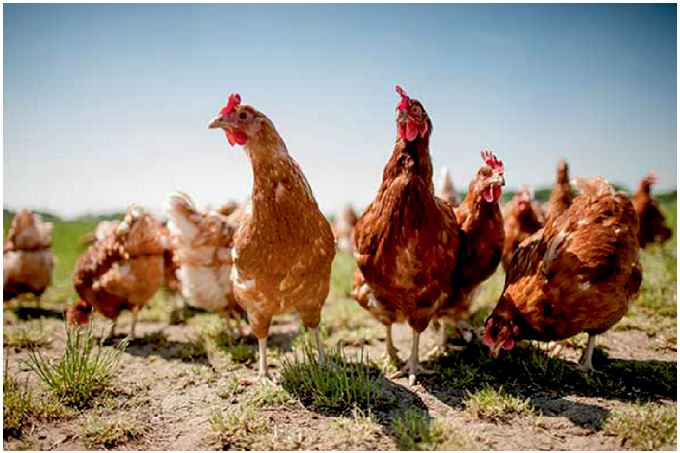
Dr Bhaskar Choudhary
Area Manager – South East Asia & West Africa at
Biochem Zusatzstoffe Handels- und Produktionsgesellschaft mbH
Cineol, also known as eucalyptol, is a natural organic compound found in essential oils of various plants. It has been extensively studied for its pharmacological properties, including anti-inflammatory, analgesic, and antimicrobial effects. In recent years, research has focused on the potential benefits of cineol in poultry production. This review summarizes the current scientific literature on the effects of cineol on poultry birds, including its antimicrobial properties, anti-inflammatory effects, and potential to improve feed efficiency.
Antimicrobial properties:
Cineol has been found to have potent antimicrobial properties against a range of bacteria, fungi, and viruses that can cause diseases in poultry. For example, a study published in the Journal of Applied Poultry Research found that administering cineol to broiler chickens reduced the incidence of respiratory infections caused by the bacteria Mycoplasma gallisepticum. Other studies have shown that cineol can inhibit the growth of Salmonella enteritidis, Escherichia coli, and other pathogenic bacteria in vitro, suggesting its potential as a natural alternative to antibiotics in poultry production.
Anti-inflammatory effects:
Inflammation is a common response to infection or injury and can cause a range of health problems in poultry, including reduced growth rates and increased mortality. Studies have found that cineol can help reduce inflammation in the respiratory tract of poultry birds, which can improve their overall health and reduce the risk of respiratory infections. For example, a study published in the Journal of Veterinary Pharmacology and Therapeutics found that cineol reduced the production of pro-inflammatory cytokines in the lungs of chickens infected with avian influenza virus.
Effects of dietary 1,8-cineole inclusion on serum cytokines level of broiler chickens (pg/mL).

1TNF-α, tumor necrosis factor-α; IL-1β, interleukin-1β; IL-4, interleukin-4; IL-10, interleukin-10. 2. SEM = total standard error of means (n = 6). a,b Means within a row with different superscripts are significantly different (p < 0.05).
Effects of dietary 1,8-cineole inclusion on serum immunoglobulin levels of broiler chickens (g/L).

- IgG, immunoglobulin G; IgA, immunoglobulin A; IgM, immunoglobulin M.2. SEM = total standard error of means (n = 6). a,b,c,d Means within a row with different superscripts are significantly different (p < 0.05).
Cineol oil helps in ND & IB titer vaccine maintenance.
Newcastle Disease (ND) and Infectious Bronchitis (IB) are viral diseases that can affect poultry birds and cause significant economic losses to the poultry industry. Vaccination is an effective method for preventing these diseases, and maintaining the vaccine’s efficacy is essential for effective disease prevention.
Cineol oil may be helpful in maintaining the efficacy of ND and IB vaccines by:
- Improving respiratory function: Cineol oil has respiratory benefits and can help to improve the respiratory function of poultry birds. This can be helpful for birds that have been vaccinated against respiratory diseases like ND and IB.
- Boosting the immune system: Cineol oil has been shown to have immune-boosting properties, which may help to enhance the effectiveness of ND and IB vaccines.
- Antimicrobial properties: Cineol oil has antimicrobial properties and may help to prevent the growth and spread of harmful bacteria and viruses that can affect the effectiveness of ND and IB vaccines.
To use cineol oil for ND and IB vaccine maintenance, it can be added to the drinking water or sprayed in the air to create a mist. However, it’s important to follow the recommended dosage and consult with a veterinarian or poultry expert before using cineol oil or any other natural remedies for poultry birds. Additionally, it’s important to continue following recommended vaccination protocols and good biosecurity measures to prevent the spread of ND and IB .
Improvement of feed efficiency:
Feed efficiency is a critical factor in poultry production, as it can impact the profitability of the operation. Several studies have found that cineol can improve feed efficiency in broiler chickens, potentially by improving the digestion and absorption of nutrients from feed. For example, a study published in the Journal of Animal and Feed Sciences found that supplementing broiler chicken diets with cineol increased feed intake and weight gain, resulting in improved feed conversion ratios with dose of 100-500 ml / per MT of feed.

Effects of dietary 1,8-cineole supplementation on jejunum morphology of broiler chickens: (A) villi height; (B) crypt depth; (C) villi height/crypt depth. a,b,c Means within a row with different superscripts are significantly different (p < 0.05).

Effects of dietary 1,8-cineole supplementation on ileum morphology of broiler chickens: (A) villi height; (B) crypt depth; (C) villi height/crypt depth. a,b,c,d Means within a row with different superscripts are significantly different (p < 0.05
Effects of dietary 1,8-cineole supplementation on intestinal mucosa SIgA(ng/mg) content of broiler chickens.

- SEM = total standard error of means (n = 6). a,b,c Means within a row with different superscripts are significantly different (p < 0.05).
Help in Reduce Heat Stress:

Heat stress occurs when birds are exposed to high temperatures and humidity, which can result in a range of negative health effects, including reduced feed intake, decreased egg production, and even death.
Cineol oil can be helpful in reducing the effects of heat stress in poultry birds by:
- Cooling the body: Cineol oil has a cooling effect on the body when applied topically or when birds inhale its vapors. This can help to regulate the body temperature of poultry birds and reduce the risk of heat-related illnesses.
- Reducing inflammation: Cineol oil has anti-inflammatory properties that can help to reduce inflammation in the body of poultry birds caused by heat stress.
- Improving respiratory function: Cineol oil has respiratory benefits and can help to improve the respiratory function of poultry birds. This can be especially helpful during hot and humid weather conditions when birds may have difficulty breathing.
To use cineol oil for heat stress in poultry birds, it can be added to the drinking water or sprayed in the air to create a cooling mist.
Conclusion:
In conclusion, cineol has many potential benefits for poultry birds, including its antimicrobial properties, anti-inflammatory effects, and potential to improve feed efficiency Additionally, it is important to use cineol responsibly and under the guidance of a veterinarian or animal health professional, as overuse or misuse can be.






